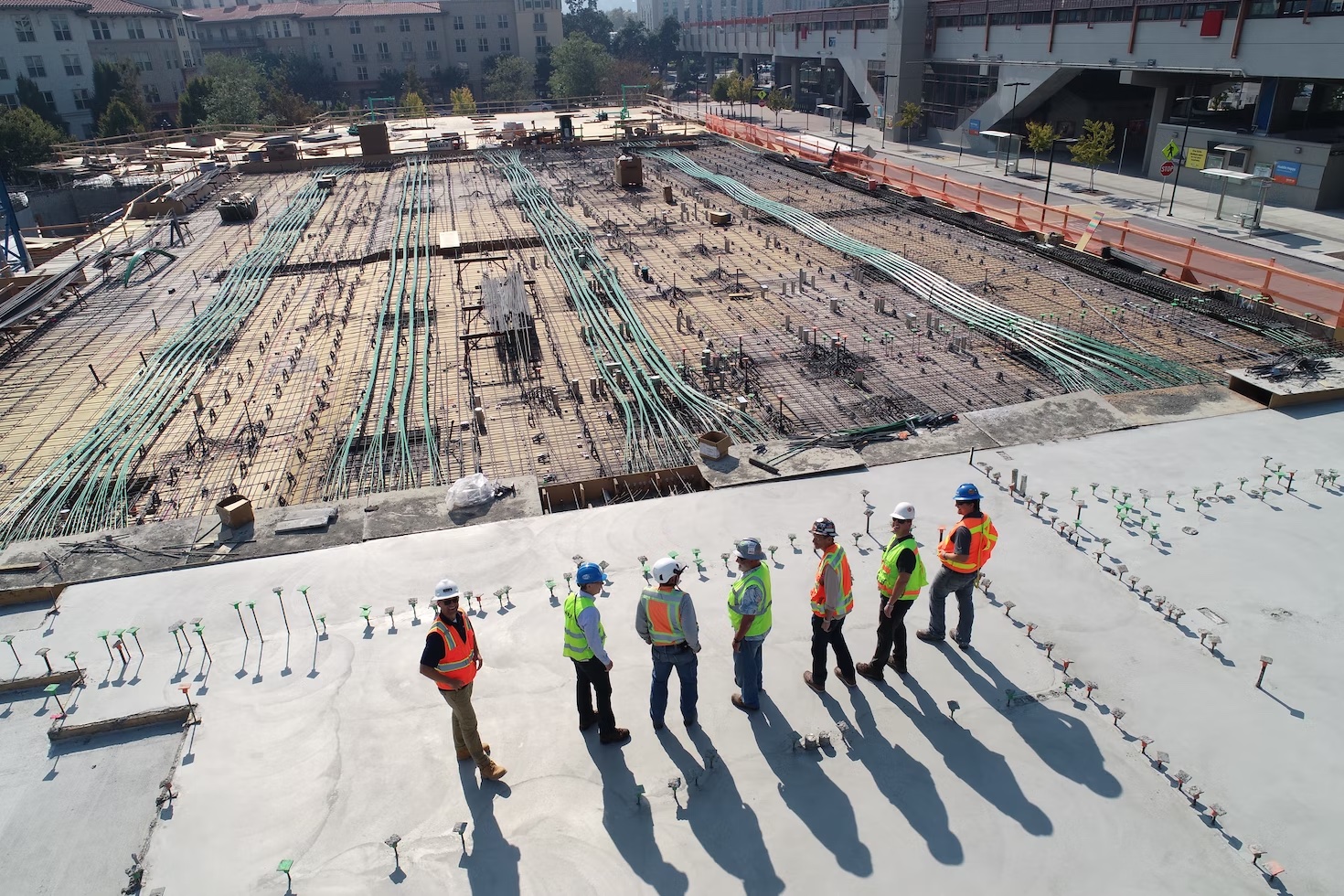Construction Marketing: How Construction Industry Marketing Differs From Other Industries
Construction marketing and marketing for construction companies is a complex and nuanced process, but is also a crucial tool to attract new leads, nurture prospects through the sales cycle, and strengthen relationships with current customers. Every construction project ends eventually, and successful companies in the construction industry must understand how to leverage digital marketing to create a steady pipeline of future projects that will secure a constant stream of revenue.
But how does construction industry marketing differ from other industries? How can you overcome those unique challenges to create a competitive advantage for your construction business? The construction industry has been slower than most to adopt modern marketing techniques, so if you can master construction company marketing best practices, you’ll be leaps ahead of the competition–and, more importantly, have stronger and more profitable relationships with your customers.
What makes construction marketing different
Every industry is unique, and there’s no such thing as a “one size fits all” marketing strategy. But B2B companies, and construction companies in particular, face their own specific challenges with attracting leads and converting those prospects into returning customers.
Before building your digital marketing strategy, it’s important to understand what makes your industry and business unique. Based on our years of experience leading B2B marketing efforts for construction companies, here are a few differentiating factors that can impact the success of marketing tactics.
The construction industry has long sales cycles
Even within the B2B landscape, the construction industry is characterized by extremely long sales cycles. It can be months or even years between a prospect’s first interaction with your brand and the date the sale is finalized. And that lead time doesn’t even account for the time it takes to actually do the work and complete the construction project.
The extended sales cycle cannot be ignored when crafting a digital construction marketing strategy. If your clients are planning so far into the future, your business needs to as well. Develop different and targeted digital marketing strategies for leads at various stages in the project cycle–the way you talk to a prospect who’s just now starting to identify their project need and search for possible solutions should be different from the way you talk to a customer who knows exactly what they want and is deciding between two or three different companies to contract with. Trying to force a single digital marketing message or tactic to encompass the entirety of the extended construction sales cycle is inefficient and ineffective.
The construction industry has a complex network of decision makers
Another unique feature of the construction industry is the large and complicated network of decision makers involved in any sale, including owners, engineers, general contractors, subcontractors, and more. The dynamics of who influences and makes what purchasing decisions and when are more nuanced than in other B2B industries, and construction companies must adapt their marketing to fit the interests of a huge number of stakeholders.
Traditionally, the architect designs a project, the general contractor pays subcontractors or suppliers for the project, and the owner takes advantage of the end product. While the owner ultimately pays for the project, subcontractors perform a vast majority of the work and get paid by the general contractor. There is a complex relationship between the owner, architect, general contractor, and subcontractor, and each of these audiences have separate needs and will be best reached by different marketing strategies. The process becomes even more complex when you add in engineers and specialists, like roofing consultants.
The complexity of this sales process underscores the importance of digital marketing as the best and most targeted way to reach select audiences. With the incredible power of data analytics, search engine optimization, and targeted promotion, digital marketing is the most effective way to reach exactly the people you need, at exactly the right time, with exactly the information to meet their interests.
At ZAG FIRST, we’ve worked extensively with the 5 Ds of the construction industry: 5 key decision makers that should all be accounted for in your digital marketing strategy. These are:
- Demand Initiators: the owners, operators, or developers of a building. Their biggest priorities may be lower operating costs, higher rent return, reduced risk of business interruption, greater resale value, and project completion speed.
- Demand Creators: the engineers, architects, and designers of a building. Their biggest concern is the construction company’s ability to deliver the needed performance–either technical, physical, or aesthetic–and maintain legal compliance.
- Demand Enablers: the main contractors or builders. Since they are responsible for delivering the needs of the Demand Initiators based on the requirements of the Demand Creators, this audience cares about delivering a project on-time and on-budget. They may be seeking specialist subcontractors for supply and installation needs.
- Deal Makers: distributors, resellers, or wholesalers. These channel partners need reliable suppliers, a competitive value proposition, a recognized and trusted brand, and the ability to comply with the needs of the Demand Creators at a profitable price.
- aDopters / Disruptors: subcontractors and installers. They want products that are fast and easy to install, convenient to purchase (close by and readily available), and safe to handle. They can either follow (adopt) the material choice specified by the engineer and architect, or disrupt the demand process by proposing an alternative that may be lower cost, easier to purchase, or easier to use.
Construction is neither a pure product nor a pure service industry
Unlike many other B2B companies, construction companies offer a mix between products and services, which can make construction industry marketing more complex. When determining how to position your business to set yourself apart from your competitors, consider: what aspects of your product appeal to each of the 5 decision makers? How is your service (i.e. your delivery, installation, and communication around that product) superior to other construction companies? Which digital marketing tactics are best suited to promoting your product? Which should center around your service?
The bottom line
Marketing for construction companies is incredibly important, and before you can build your strategy, you should understand what sets your industry apart. Our experts have put together a blog series on construction industry marketing that will strengthen your relationships with customers, generate leads, and improve your business outcomes. For more information, check out our other posts or get in touch with our team!





